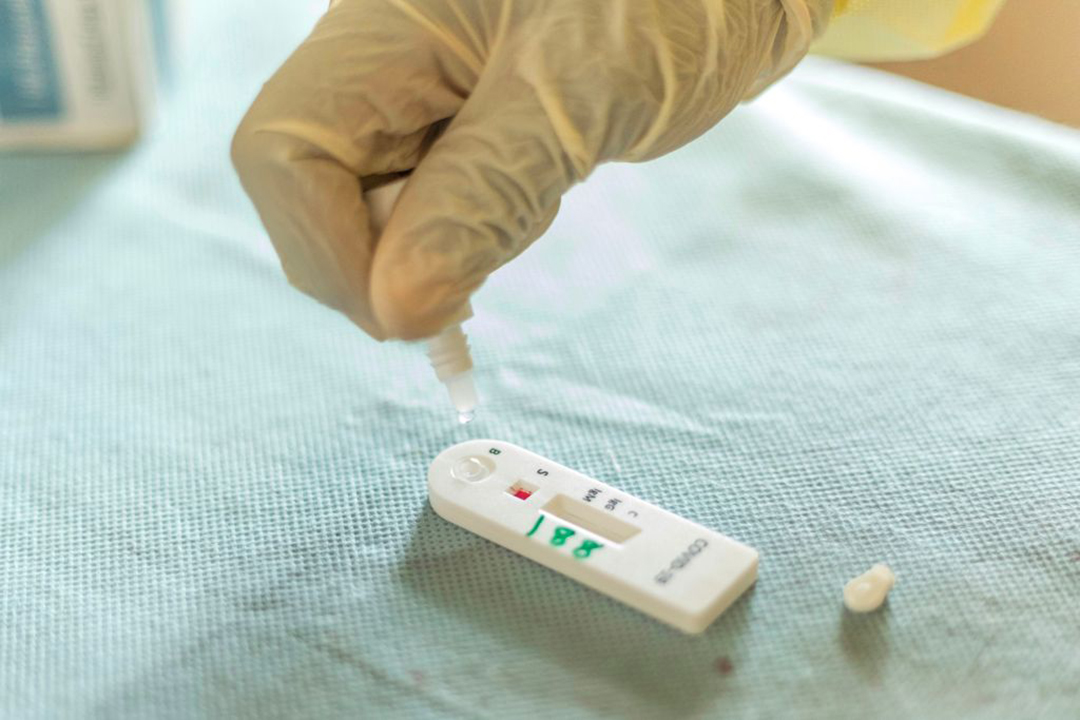African Health Leaders on Alert for New Variants
ADF STAFF
Africa’s current wave of COVID-19 infections driven by the delta variant is declining, but public health experts remain vigilant against the emergence of new variants that could drive a new wave of infections and deaths.
Researchers in Nigeria and South Africa have identified two new variants that raise red flags among public health experts. In mid-September, the Africa Centres for Disease Control and Prevention (Africa CDC) revealed the presence of the gamma variant on the continent.
Nigerian researchers discovered variant B.1.525 in December 2020. The World Health Organization (WHO) labeled it a variant of interest — a step down from variant of concern — and gave it the Greek letter designation “eta.”
Since it was discovered, eta has spread to 70 countries. In Africa, it has appeared in Angola, Cameroon, Gabon, Ghana, Mali, Nigeria, South Africa, Tanzania and Uganda.
“It has really spread very fast and is the second largest variant in Africa,” said Christian Happi, director of the African Centre of Excellence for Genomics of Infectious Diseases at Redeemer’s University in Nigeria.
South Africa’s National Institute for Communicable Diseases identified variant C.1.2 in May, which researchers say is the most highly mutated strain of the COVID-19 virus discovered to date. So far, the variant makes up about 3% of all infections in South Africa.
Although C.1.2 mainly is found in South Africa, it accounts for 130 cases in 10 countries worldwide, including Botswana, Mauritius and the Democratic Republic of the Congo.
“The variant is being constantly monitored, but at this stage the numbers are quite low,” said Professor Alan Christoffels, director of the South African National Bioinformatics Institute.
“There’s still a need for serious research and studies into the C.1.2. variant,” said Dr. Nicksy Gumede-Moeletsi, regional virologist at the WHO Africa regional office.
In his weekly COVID-19 report on September 16, Africa CDC Director John Nkengasong reported for the first time that two unnamed African countries had cases of the gamma variant. Gamma, also known as P.1, was discovered in Brazil in November 2020.
As of mid-September, 43 African countries have reported the alpha variant, 37 the beta variant and 37 the delta variant. Positivity rates variant remain between 11% and 12%, more than double what the WHO considers high enough to demand a societal lockdown.
“We should always think of these variants of concern as being overlapping,” Nkengasong said. “In some countries you may have all of them.”
Nkengasong and other health experts continue to encourage African citizens to use masks, hand-washing and social distancing as much as possible to reduce the spread of COVID-19. Each new infection is a new opportunity to create a more potent variant of the virus.
Nkengasong said the Africa CDC will launch widespread community testing in an effort to get ahead of a potential fourth wave.
Teams will use antigen-based rapid tests, which are portable and easy to use with minimal training outside urban areas. They’ll also expand their focus beyond people exhibiting COVID-19 symptoms to find the virus in people who show no symptoms.
The goal is to locate potential outbreaks before they can flare up, he said.
Genetic-based PCR tests, which take longer but are more accurate, will continue to be used for travelers, he said.
Previous studies have suggested that large parts of some African populations have been exposed to COVID-19 without developing symptoms. One recent study suggested that 80% of South Africans have been exposed to the virus.
“Surveillance is a continuous activity,” Nkengasong said. “It will be a challenge, but we are in a tough situation. We have to use everything. The centrality of good public health is surveillance.”


Comments are closed.